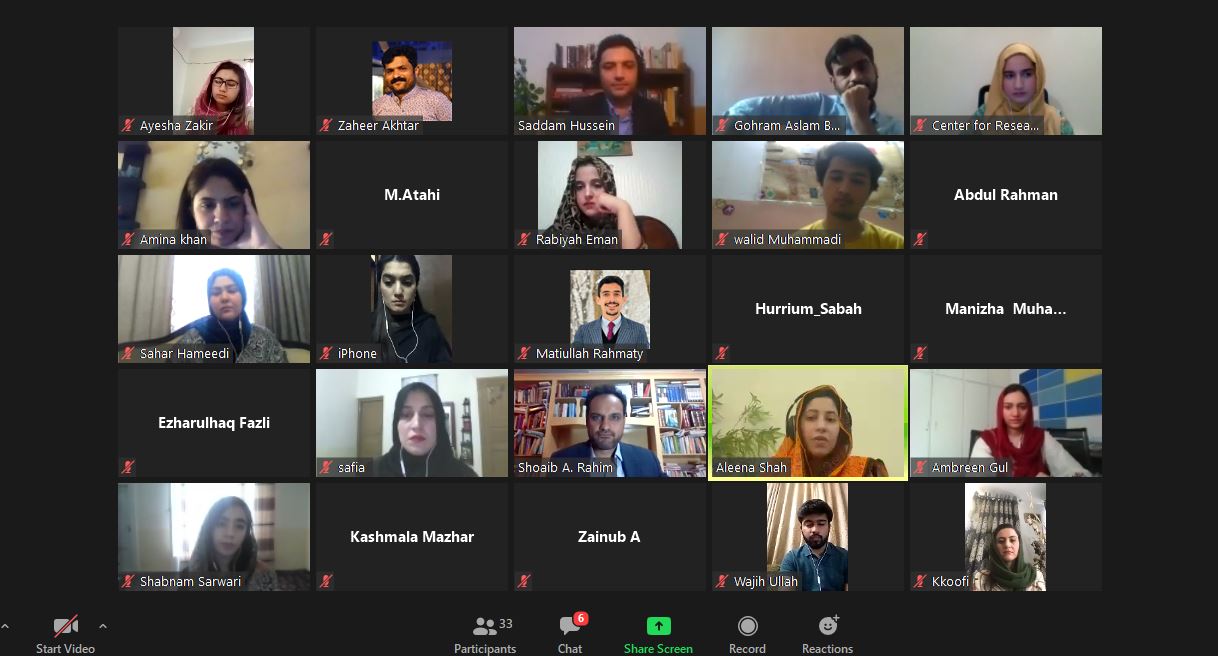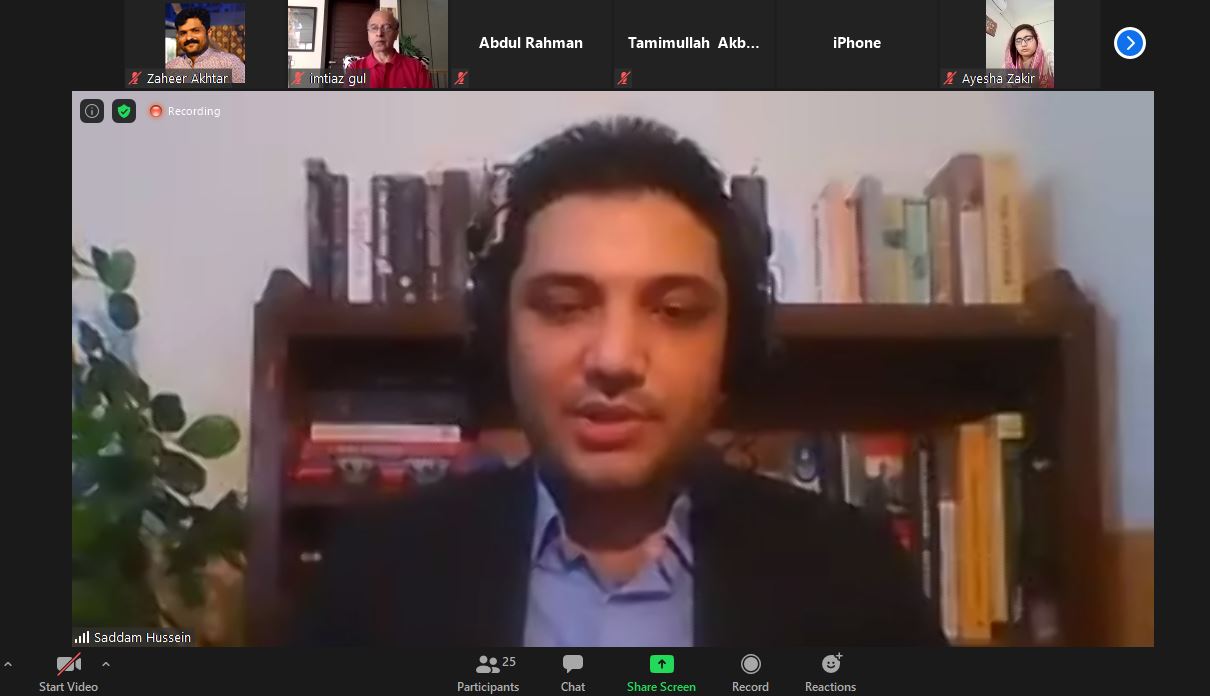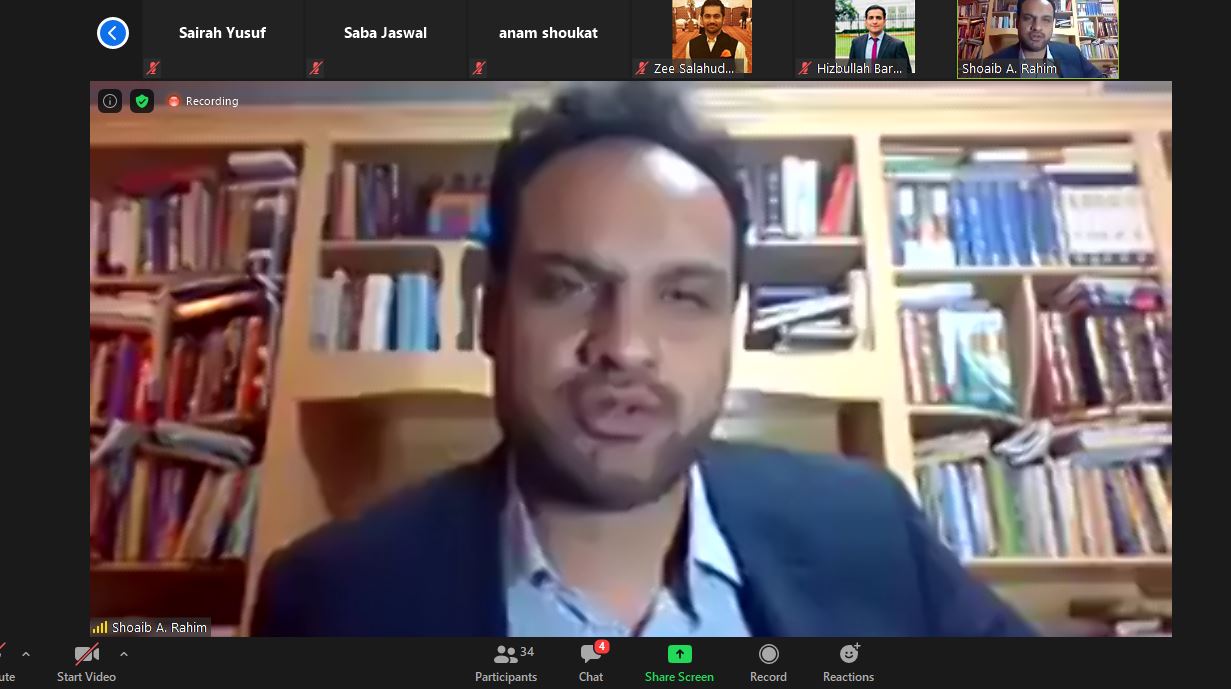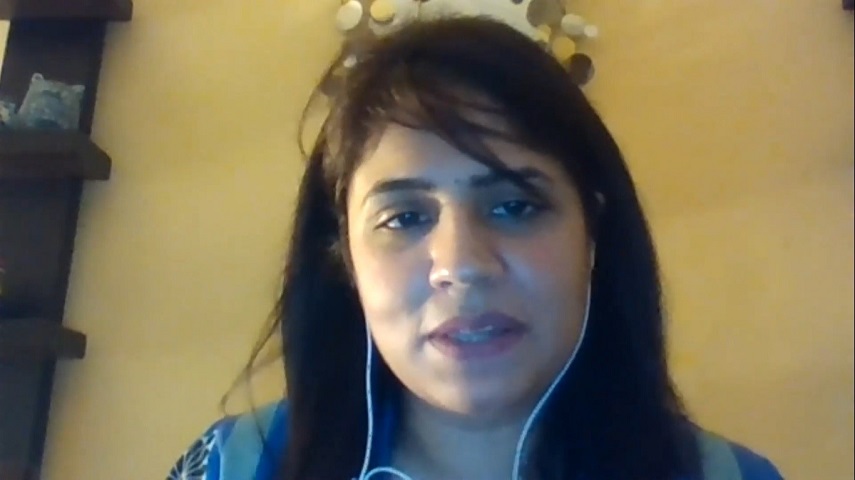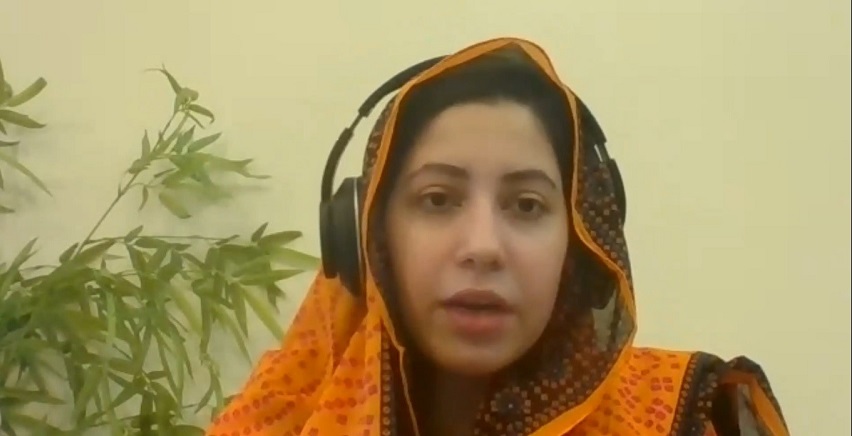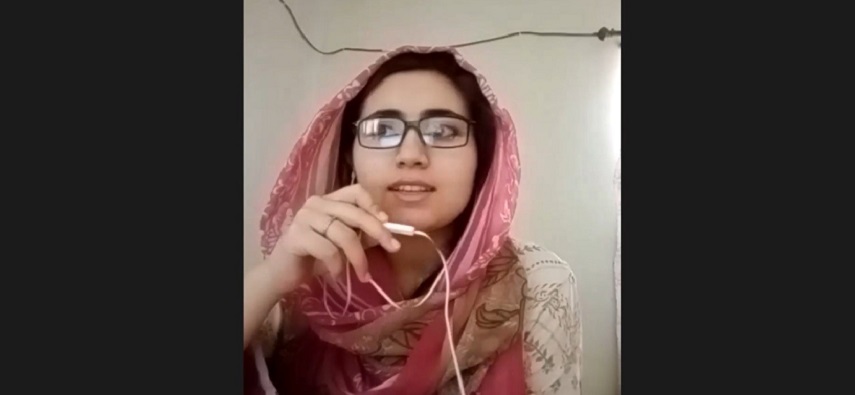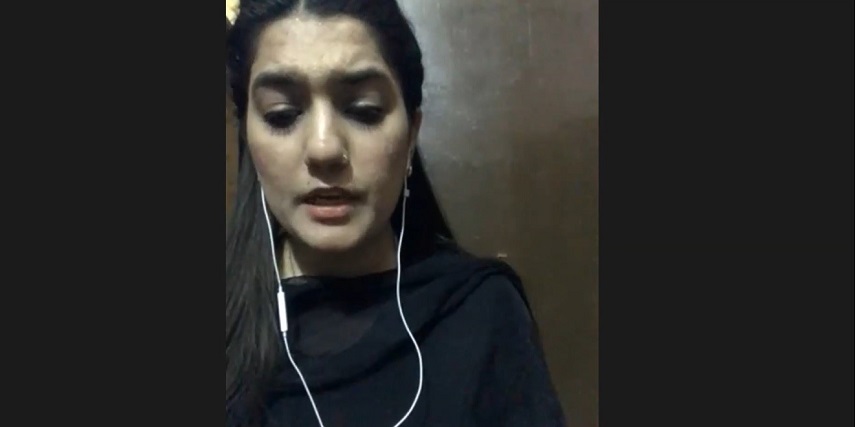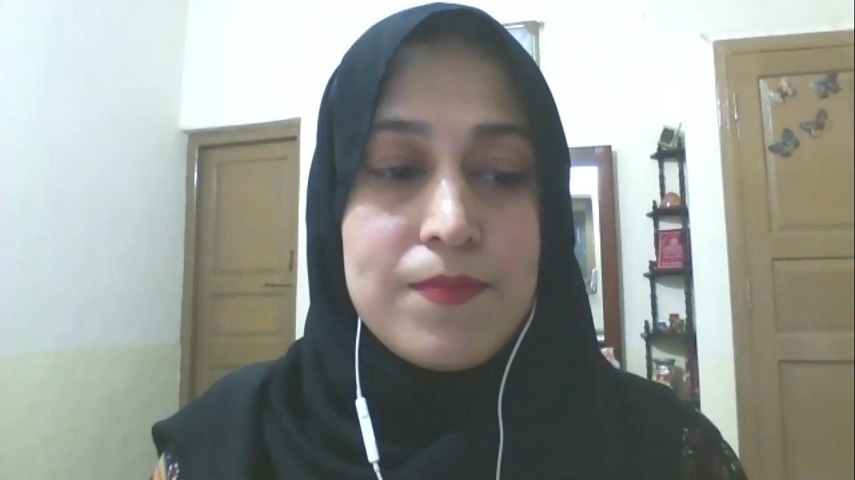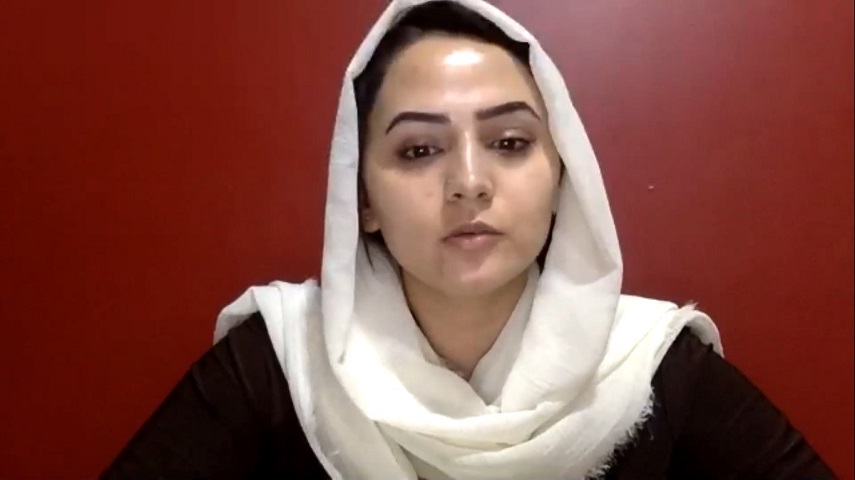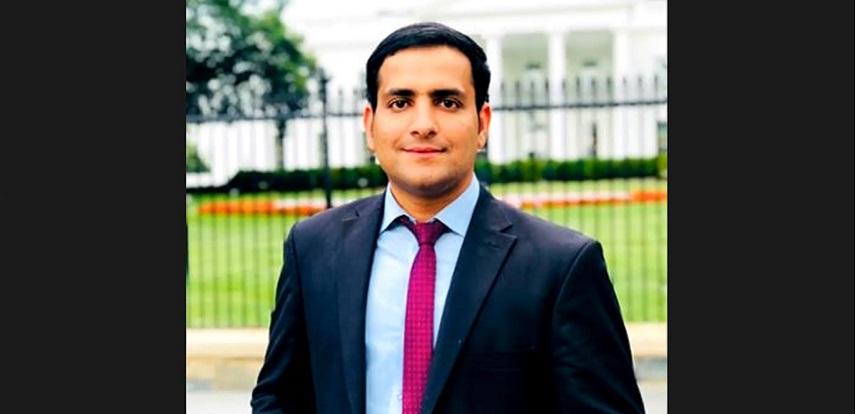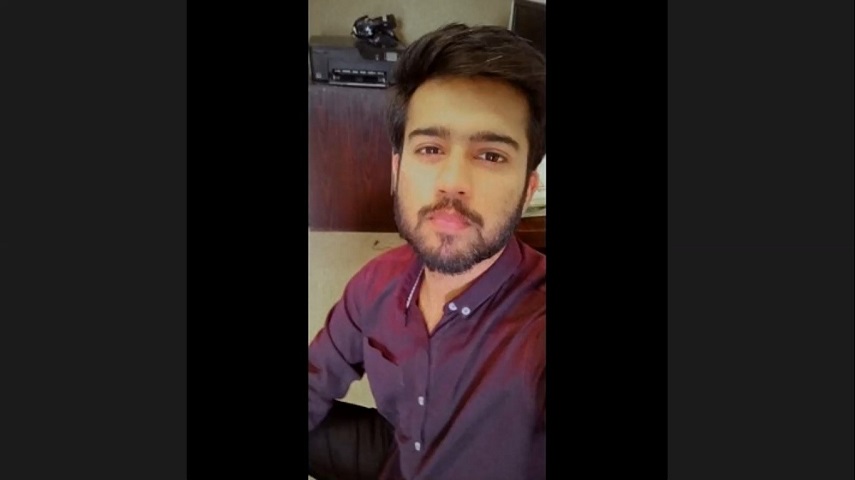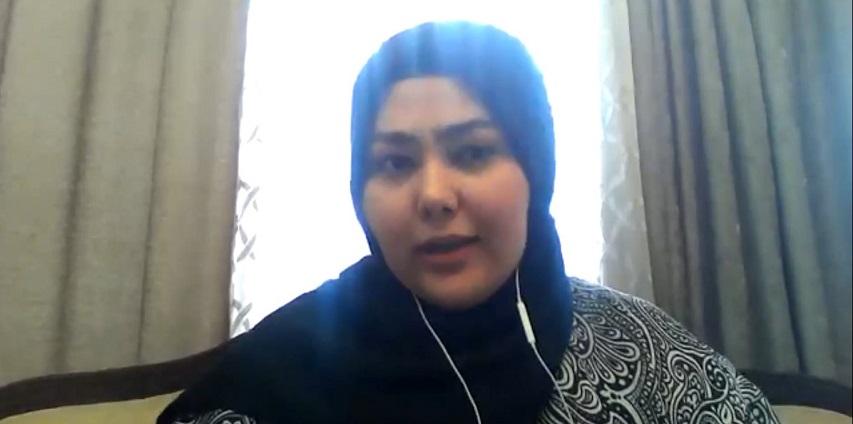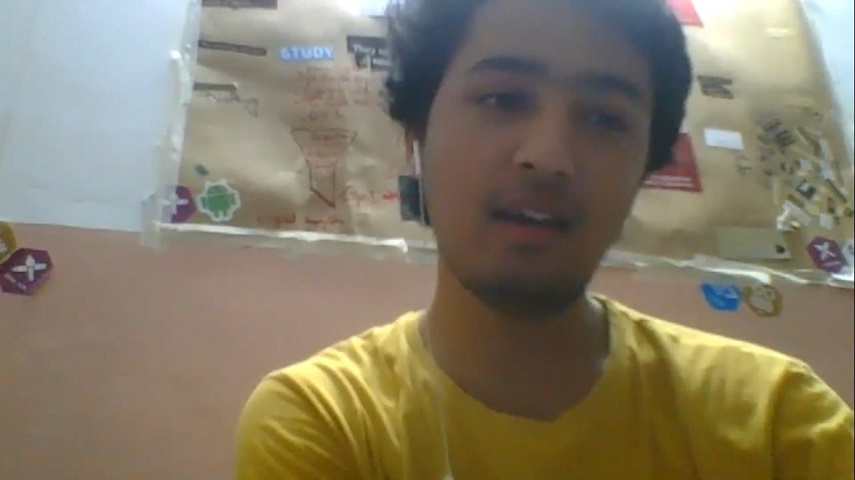The Center for Research and Security Studies (CRSS) Islamabad, as part of its efforts to improve people to people contact and promote positive and constructive narratives between Pakistan and Afghanistan, organized a Pak-Afghan Youth Leaders’ Webinar, in collaboration with Organization for Economic Studies and Peace (OESP), Kabul, under its Pak-Afghan Track 1.5/II project “Beyond Boundaries” via Zoom, on Tuesday, June 23, 2020, with over 20 youth leaders in the fields of politics, social development sector, private sector, media, entrepreneurs, writers, graphic designers and youth activists, from Afghanistan and Pakistan. The theme of the webinar was: “Connecting Pak-Afghan Youth Leaders in Times of COVID-19”.
The session was further divided into three parts. First, where the keynote speakers, one each from Pakistan and Afghanistan delivered keynote addresses on the theme “Opportunities for Cooperation between the Youth of Pakistan and Afghanistan during COVID-19 Pandemic”. Afterwards, there was an interactive session, followed by joint policy recommendations session.
Amina Khan from Pakistan and Shoaib A. Rahim from Afghanistan were invited as key-note speakers and also as moderators for joint policy recommendations and interactive sessions respectively. Amina Khan is the Director, Center for Middle East and Africa (CMEA) as well as Afghanistan at Institute of Strategic Studies Islamabad (ISSI), while Shoaib A. Rahim is a development practitioner and also an Assistant Professor at Kardan University, Afghanistan.
Pakistani participants included: Aleena Shah, President, Youth General Assembly (Islamabad Chapter); Saba Hurrium, Lecturer, Quaid-i-Azam University; Ayesha Zahir, Former Youth Cultural Ambassador to US; Ambreen Gul, Doctor of Pharmacy; Muhammad Akbar Khan, Legal Counsel at Pakistan State Oil; Sundas Khan, Youth Activist, RJ and Media Worker; Kashmala Mazhar, Artist and Graphic Designer; Wajih Ullah, Researcher at Institute of Peace and Diplomatic Studies; Rabia Shabbir, Youth Activist; Gohram Aslam Baloch, Freelance Journalist and Anum Shoukat, Marketing Lead.
Afghan youth leaders included Safia Ibrahimkhail, Refugee Youth Ambassador, UNHCR; Shabnam Sarwari, Finance and Admin Associate, GIZ; Sahar Hamidi, Youth Ambassador; Fatima Farid, Gender Based Violence Associate (GBV Associate), East Vision Consultancy Services Co.; Ezharulhaq Fazli, Unit Head with MRRD/ Citizen’s Charter National Priority Program; Mariam Atahi, Communication, Advocacy, Spokesperson at Save The Children in Afghanistan; Matiullah, President at Bright Point Consulting Services; Hizbullah Baryal, Youth Ambassador; Kahkashan Koofi, Social Activist; Nabila Sakhizada, Communication Officer, UN; Walid Muhammadi Digital Marketer and Entrepreneur and Tamimullah Akbari, Global Peace Chain Ambassador for Afghanistan.
Saddam Hussein, Research Fellow and Program Officer at CRSS, who was moderating the overall session, introduced CRSS and Afghan Studies Center. In the introductory note, he stated that the current developments regarding Afghan peace process are the closest the region has come to in reaching a political solution since 2001. A peace treaty with the Taliban would allow not only Afghanistan’s political order, but also the international involvement, regional security architecture, and Afghanistan’s position to be re-negotiated in the global helm of affairs. With peace around the corner in Afghanistan, the role of youth has become ever more critical and significant in nature. The peace process and role of youth should go hand in hand. Youth should now work more robustly to shape the progressive future of Afghanistan as well as that of the region. Peace may not be very near. We surely can see the light at the end of the tunnel, but the tunnel may be longer than we expect. Nevertheless, youth must start walking towards the light and carve out a better future in a positive environment, Hussein added. He then invited Muzammil Shinwari, Executive Director OESP, for his opening remarks.
Muzammil Shinwari, in his opening remarks, after thanking and welcoming all the participants, stated that it is always a pleasure to engage with youth and be part of the young energy. It is wonderful to work with youth on both sides in developing positive perceptions in both countries. Youth is of significant importance to talk to, as they are the leaders of tomorrow, future belongs to them. He further went on to say that Pakistan recently appointed former Ambassador Muhammad Sadiq as a Special Representative for Afghanistan. Now this is a very promising move regarding Pak-Afghan bilateral relations, as Sadiq knows the very details of all the dynamics that comes into play when it comes to Pakistan and Afghanistan. In parallel, Kabul is also taking tangible steps to pave the way for the first intra-Afghan dialogue. He also thanked Islamabad’s support in this regard.
Regarding bilateral trade, Shinwari apprised the participants that Pakistan has just announced to open its third border crossing terminal with Afghanistan – Ghulam Khan – with Torkham and Chaman border points already allowing transit and bilateral trade, to boost the trade volume between the two countries and facilitate landlocked Afghanistan, especially in times of COVID-19. The new arrangement for trade will be in operation for six days a week while Saturday will be reserved for the movement of pedestrians between the two sides. Afghan exports will now also be allowed to pass through. However, Shinwari stressed that trade and economics should be delinked from politics to avoid any disruptions in future.
Afghan refugees is another issue that needs to be sorted out. Though, with peace around the corner, in the wake of upcoming intra-Afghan dialogue, the issue of refugees would evaporate on its own; as most of the refuges would want to go back to post-peace Afghanistan. So, overall, there are ample opportunities for both countries to take optimal benefit of each other in a healthy and positive environment. This opens doors for youth on both sides to vigorously engage with each other and carve a better future, Shinwari added.
Afterwards the keynote speaker Shoaib A. Rahim while speaking on the theme, provided some facts and figures regarding the COVID-19 cases in Pakistan and Afghanistan. Though he stated that the numbers depend on the ability of conducting tests per day as well as well-coordinated health sector. Unfortunately, Pakistan and Afghanistan both have similar issues which results in non-representative data. Moreover, a significant portion of population in both countries are not taking the pandemic seriously. Some call it a curse from God, some consider it a conspiracy, a propaganda tool and others see it as an enemy action. None of them acknowledges that whatever the case may be, one thing is clear that we have to protect ourselves form this deadly virus.
Moreover, he stated that economy in both countries was performing poorly before pandemic, which were further hit hard by the COVID-19. Both countries are projected to experience contraction throughout 2020. As a result, millions will get unemployed and millions would be pushed below the poverty line. Key labor-intensive sectors are expected to contract more sharply and so would recover slowly post-pandemic, on both sides. So, things are not looking very pretty as we see it. This calls for mutual cooperation in diverse fields.
However, Rahim was of the view that the way forward in these challenging times would include: youth volunteerism ad activism, innovative use of digital space for education, psychotherapy, tele-health, leveraging social media to raise awareness and address misconceptions and thinking of innovative ideas to stay busy during the pandemic.
Amina Khan, the second keynote speaker, while opening her talk stated that most of the Pak-Afghan forums usually focus too much on negativities, but CRSS and Afghan Studies Center are building more on positives which is the right way forward. Our forefathers (Pakistan and Afghanistan) had a wonderful relationship. As a youth it’s now our responsibility to revive that and honor the legacy of our ancestors. Pakistani people and Afghan refugees have lived together side by side for more than 40 years, without looking at each other’s communities as “other”. So, we have a shared history of growing up together, added Khan.
No single country can live in isolation and prosper on its own. We do need our neighbors. It is a fact, whether we like it or not that Pakistan and Afghanistan are very close neighbors with number of affinities and cultural similarities. Both sides need to cash in on these common grounds. This is where the role of youth comes in, which is very significant. Youth can build bridges across the border. Instead of focusing on petty politics, as future leaders you ought to focus on economics, trade, joint research, joint ventures, educational exchanges, cultural exchanges and so on. You can reduce the chances of conflict that way, Khan told the participants.
Amina Khan also articulated that friendship between Islamabad and Kabul is essential to the extent possible. Only through understanding and cooperation, this region would be able to achieve its true potential. Therefore, the way forward is very simple. Pakistan and Afghanistan can either live together like friends and reap the benefits of it or continue to undermine each other and indulge in the usual blame game, making us the crux of the world’ ridicule.
In the interactive session, most of the participants shared their views, followed by a joint policy recommendations session.
Aleena Shah, who is the President, YGA – Islamabad Chapter – a socio-political organization, shared with the participants that her organization is helping in the capacity building of youth. She assured that her organization is very open to new ideas and to the people from diverse background. She informed that recently Vice President of YGA Islamabad Chapter has been replaced by an Afghan (refugee) girl, Safia Ibrahimkhail. This is how youth should promote cooperation, she stressed. The news was cherished by all those who were present, Afghans in particular. Aleena also stated that YGA is now planning to have an exclusive platform for Afghans within YGA, so that more youngsters could join hands from across the border.
Ayesha Zakir and Sundus Khan urged the fellow youngsters to optimally use social media to cut down the misperceptions and misunderstandings. She particularly mentioned that youth can use social media as an effective tool for awareness campaigns and other related stuff about whatever is happening around us in times of pandemic.
Safia Ibrahimkhail, Manizha and Hizbullah Baryal from Afghanistan were of the view that in Pakistan and Afghanistan COVID-19 is not only a health problem, but it also brings with itself economic problems and other social challenges. So, youth can develop vibrant networks and through these they can help people around their communities. For instance, distribution of food packages, masks, sanitizers and other necessary items. Youth activism is the most viable option during these difficult times. This way youth would also be engaged some positive and productive activity. They also mentioned some of their similar initiatives and welcomed others to join.
Another young Pakistani, Wajih Ullah, opined that constructive engagement of the youth brings the real change in the social fabric of a society in the long run. Thus, it is the most appropriate time for Pak-Afghan youth to engage in youth diplomacy through digital space and generate an informed discourse relating to the issues on both sides of the border.
Sahar Hamidi shared with the participants that she has opted for few online courses, as this pandemic is offering a lot of time. During these online classes, she also gets in touch with different youngsters from around the globe, which make feel as they all are one family, with common problems and common future. She suggested that Pak-Afghan academics and students can also have such joint programs.
Walid Muhammadi sharing his story said that how we can take small steps and make a big difference. He shared that he helps the students around him to set-up virtual class-rooms and other online tools to conduct their activities. Most of the people he helps are Pakistanis and he himself is living in Pakistan as an Afghan refugee. Furthermore, as he is a student of Marketing, so in pandemic they are incorporating its affects into marketing strategies as well. Walid is also an avid reader and these times offer him a lot to read. He then shares the book reviews with others via virtual chatrooms.
After the interactive discussions by the participants and moderators during the two sessions, the youth leaders of both countries drafted the following joint policy recommendations:
Commencement of Pak-Afghan virtual tea parties, where youth of both the nations can interact in an informal setting in a lighter mood. This would be more fruitful in cultivating friendships and positive perceptions across the border.
Trade and economics should take the driving seat in the bilateral relations. For this free movement of the Afghan products and traders through Pakistan to China and India, and Pakistani products should have access to Central Asia and Europe is imperative. It’s a win-win situation for both.
Amid COVID19, youth should also project environment/climate change issues through exchange programs and symbolic work, as these issues will be surfacing in near future
Jointly managed Pak-Afghan YouTube channel that will have programs from both sides
Youth from both countries should develop collaborative work, such as awareness programs, trainings on COVID19 and dynamics
Both sides should establish a mechanism to steer a private sector led bilateral economic agenda and monitor implementation of bilateral initiatives
A joint policy group should be established to monitor closely the implementation of the above-mentioned activities periodically
Creating a WhatsApp group of the core Pak-Afghan group so that youngsters from both sides can interact and engage in constructive activities
The session ended with a pledge to continue such Pak-Afghan interaction on frequent basis, so to consolidate what has been gained so far. WhatsApp group was also created instantly after the session, as most of the participants requested. This paved way for cross engagement of youth with similar ideas and professional backgrounds. Towards the end, Saddam Hussein told all the youngsters that CRSS and Afghan Studies Center, both are committed to help facilitate in creating linkages between the youth on both sides. He assured the youth of all the help possible CRSS and Afghan Studies Center can offer in this regard,

